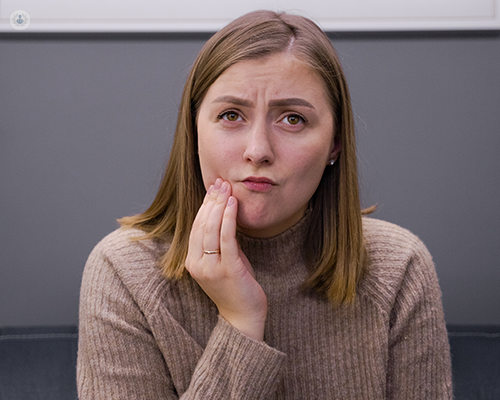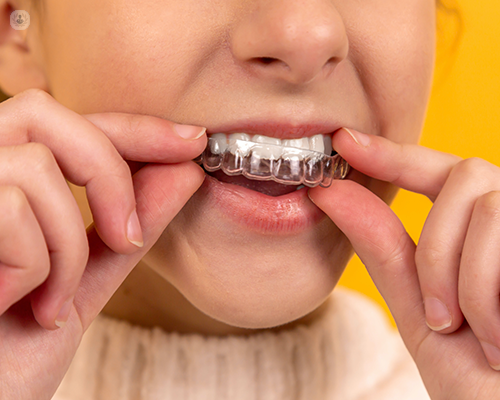Bruxism explained: how we fix teeth grinding and relieve jaw pain
Written by:Bruxism is a fancy term for teeth grinding and clenching. It’s quite common and most often occurs during sleep.

Bruxism is not uncommon
Most people will experience bruxism at least once or twice in their life. Bruxism often occurs at night when we are asleep. With bruxism, the teeth grind against each other with the jaw moving forwards and backwards or side to side. With jaw clenching, the jaw doesn’t move back and forth but the muscles contract, applying pressure to the surfaces of the teeth.
Bruxism is a symptom, not an illness
Bruxism is a symptom, not an illness. It can be an expression of stress. The jaws normally come together during eating, but when the jaws come together with excessive muscle tightness when not eating, we call this a parafunctional activity, which means that a part of the body is moving in a way that is outside of its normal function.
Signs of bruxism
- Often, patients experience pain in their jaw, most like a dull ache with occasional sharp episodes. The length of the jaw pain can range from a few minutes to a few hours.
- Patients tend to feel that the muscles around their jaw are very tight in the morning, which usually improves during the day.
Bruxism pain can be treated
The outlook for patients with bruxism is good. We can manage the pain. We just need to identify the cause, first of all.
Triggers
Bruxism typically starts during the teen years and is most often triggered by stressful events. For example, children and teenagers with exams will often experience some level of bruxism. It often comes back in the early twenties and is most often related to normal, day-to-day stress. It’s usually episodic and comes and goes with stress, lasting a few weeks or months. However, in some people, bruxism can be chronic.
Other causes of bruxism
Bruxism is like a chicken and the egg scenario: we can’t always know what came first - the pain or the condition. Therefore, we need to check the joints around the jaw and the patient’s bite.
Joint damage from a condition
In patients with bruxism, we might take an MRI scan of the joints to determine whether there is joint damage, which can be caused by rheumatoid arthritis affecting their jaw, or disc displacement in the joint.
Joint issues from a bad bite
In other cases, someone with bruxism can have a healthy joint, but they have a bad bite, like an overbite or underbite, which is causing pain. This would mean treating only the joint rather than a condition. Click here for my full guide on why you should have an overbite corrected.
Treatment
Stress induced bruxism
Patients (often young patients) that have bruxism but no joint or bite issues often need something to separate their teeth, like a night guard.

I talk about why they should be used, how they’re made and if they need to be used forever in my other article: the importance of night guards.
Disc displacement
If we suspect that there’s a problem with the disc in your jaw, we’ll refer you to a maxillofacial specialist. They can determine that there if there is a displacement of the disc. If you do have a disc issue, this can be managed surgically.
Joint and bite issues
Joint problems can involve a multidisciplinary team (MDT) approach. We collaborate with the oral surgeon to determine if surgical intervention is necessary. Also, we sometimes collaborate with a restorative specialist. Sometimes, they can carry out splint therapy to get the joint into a healthier position. And then, once the symptoms have been resolved, we can then go in and move the teeth to correct the bite which might be exacerbating the problem.
Muscular pain
If the cause of jaw pain is more muscular, then I’d refer the patient to a physio e.g. a specialist TMJ (temporomandibular joint) pain physiotherapist.
Length of treatment
The length of treatment depends on the diagnosis and treatment required. If someone has rheumatoid arthritis, they may need a joint replacement if it’s very severe. If they need splint therapy, this may take a few months. Teeth realignment can take 6 months to 3 years.
Dr Moira Wong and her team at Moira Wong Orthodontics can help you with a wide range of ailments– visit her profile to learn more.


